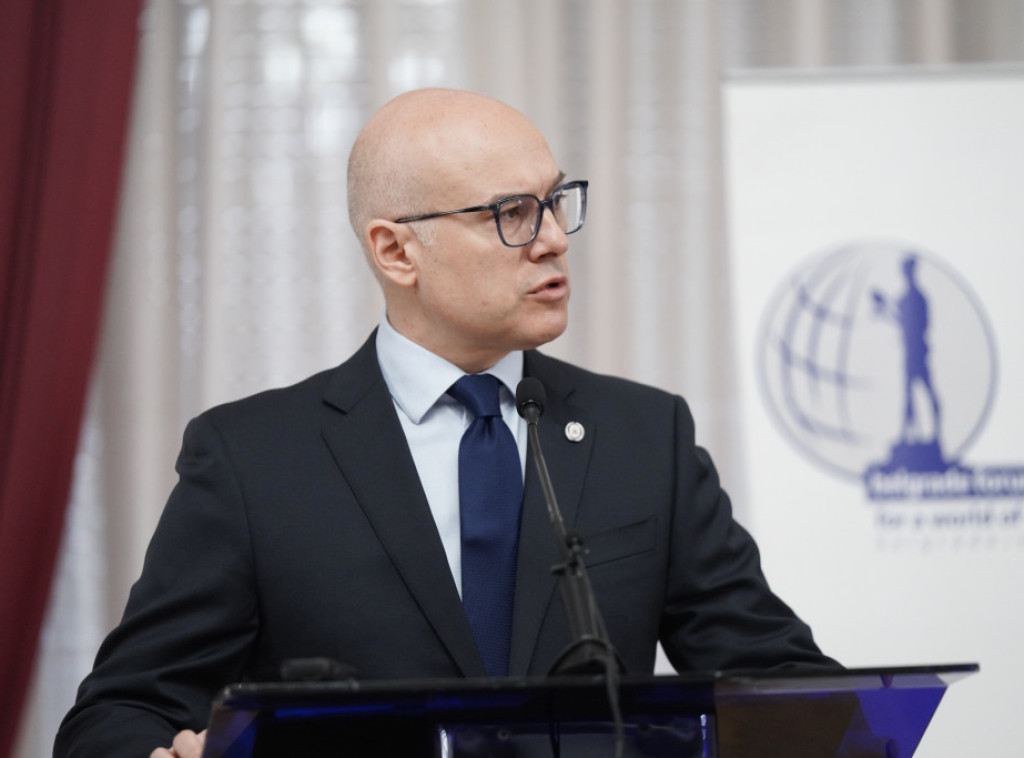Kampanja ABS "U kola bez alkohola" prikazana Beograđanima uz besplatne alko-testove
29. decembar 21:47

22. mart 2024 14:56
podeli vest

Foto: TANJUG/STRAHINJA AĆIMOVIĆ
BELGRADE - Serbian Deputy PM and Defence Minister Milos Vucevic said on Friday that, 25 years after the 1999 NATO aggression, Serbia remembered those events with sadness as well as with respect for its fighters and protectors of the fatherland, and noted that global views on the NATO aggression were increasingly changing.
At the opening of a commemorative international conference titled From An Aggression to a New, Just Order, Vucevic said more and more people in the world now thought and spoke freely about what had happened to Serbia 25 years ago.
He said March 24, 1999 - when the aggression began - had been a day of overwhelming sadness over the plight of a sovereign state and the death of international law.
Serbia will never forget the children, civilians and fighters who died in the NATO aggression, Vucevic noted.
It was an act of injustice to the Serbs, who died in their millions in the fight against fascism and Nazism, in the fight for a more just world, and are a nation that was one of the founders of the League of Nations and the UN, he said.
"The aggression itself represented a headlong demise of justice and morality and was deeply unjust," Vucevic said.
He said an expulsion of Serbs from Kosovo-Metohija that had begun after the aggression was still underway.
"Our people and our police offered strong resistance to terrorists and the aggressors, and the heroes of our people remained undefeated," Vucevic said.
"We were not defeated on the battlefield. The people who had sworn to loyalty to the fatherland defended it until the last moment," he noted.
He said the cause of the NATO aggression was an ongoing attempt to take away Kosovo-Metohija from Serbia.
"A quarter of a century on, that is why it is our obligation to keep telling new generations the truth about the NATO aggression on Serbia and Montenegro and the truth about Kosovo-Metohija," Vucevic said.
Serbian Interior Minister Bratislav Gasic said more than 2,500 civilians and more than 750 army and police troops had been killed in the 78-day NATO aggression, which severely damaged infrastructure, businesses, schools and health care institutions.
Galerija
29. decembar 21:47

29. decembar 19:39

29. decembar 19:04


29. decembar 15:27

29. decembar 14:25

29. decembar 13:26

29. decembar 13:20

29. decembar 12:53

29. decembar 21:47

29. decembar 20:49

29. decembar 19:45


29. decembar 16:11

29. decembar 08:25

28. decembar 07:36

27. decembar 21:09

29. decembar 20:18

29. decembar 16:54

29. decembar 16:41

29. decembar 16:31

25. novembar 17:40

24. novembar 14:51

23. novembar 17:21

23. novembar 15:59

28. decembar 09:30

21. decembar 09:30

14. decembar 09:30

7. decembar 12:01
